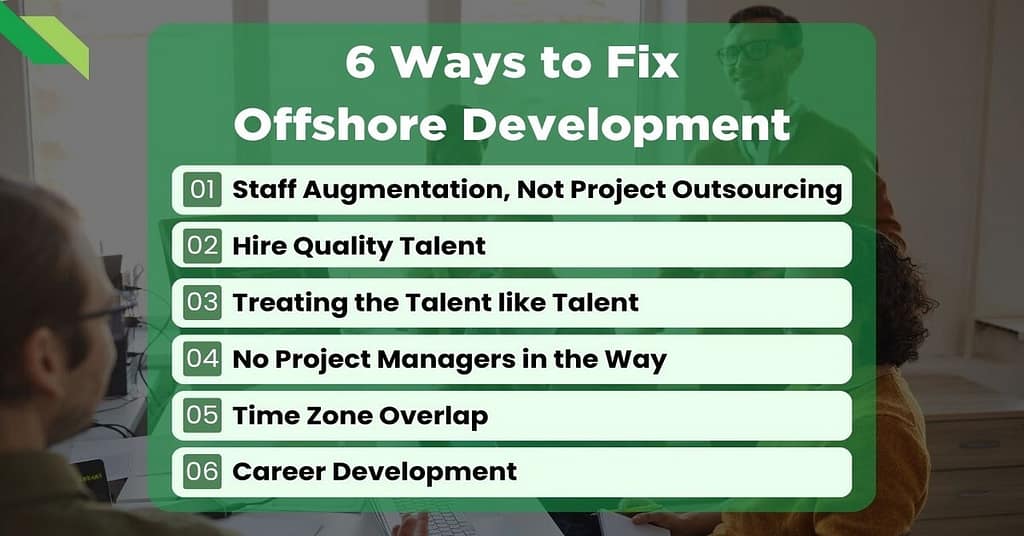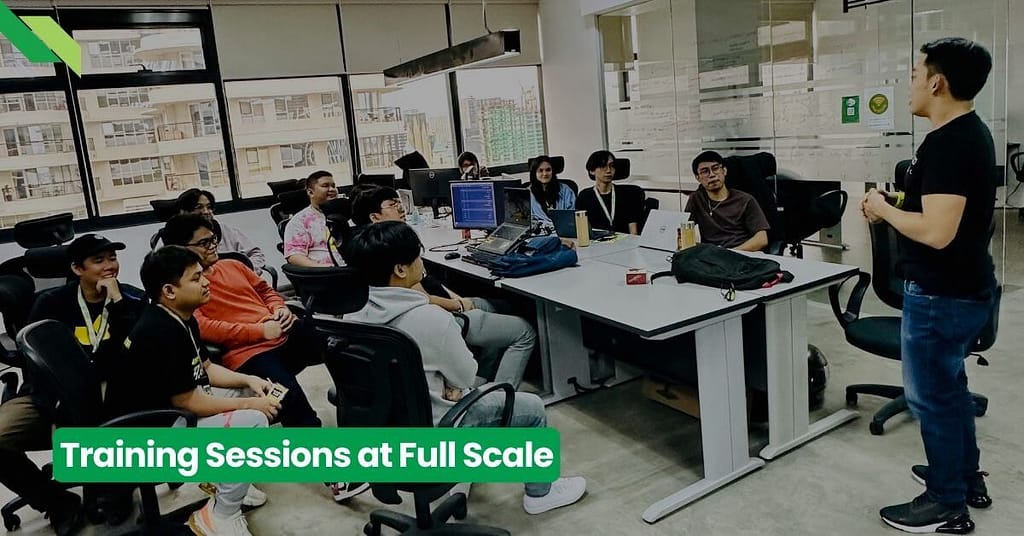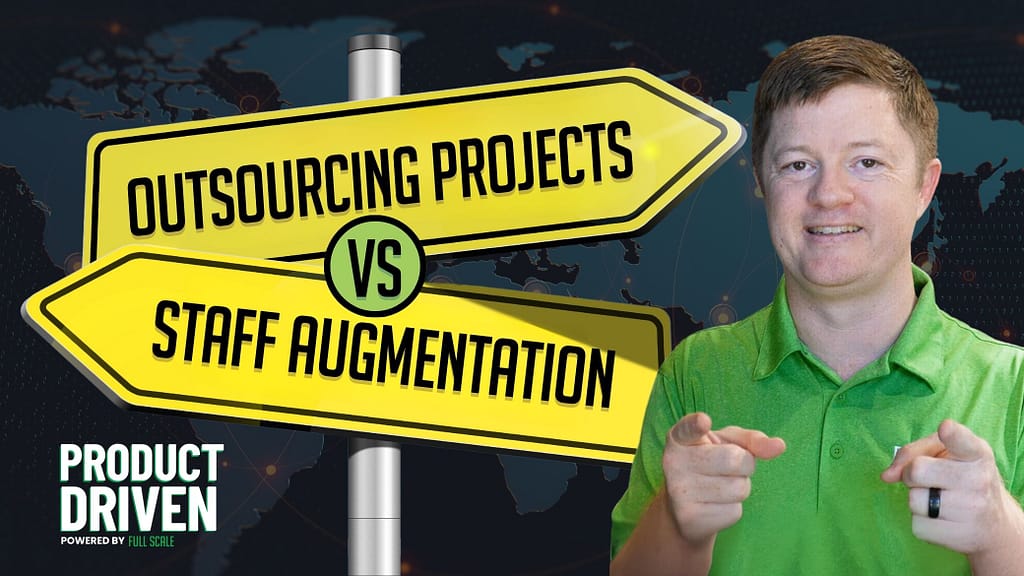Last Updated on 2025-06-25
Have you worked in software development for a very long time? No doubt you have worked with offshore development teams. You may have struggled to make it work. Most people have horror stories of going offshore from India and other countries.
I didn’t use offshore development for the first 15 years of my career due to the horror stories I heard. My first offshore project was when I accidentally hired developers from Russia. Since then, I have successfully worked with developers from many countries across Eastern Europe, Latin America, and Southeast Asia.
The reality is that 90% of software developers do not live in the United States. So if you want to tap into the best talent in the world to scale your company, you need to hire offshore developers.
I have been doing offshore work for more than 10 years. And I have talked to hundreds of other entrepreneurs and engineering leaders. I have heard every possible story about offshore development success and failure.
Here’s what I found—the top reasons why offshore development fails:
- Hiring unqualified professionals
- Problems with English fluency and communication
- Slow and low-quality work output
- Late-night meetings due to schedule differences
- Lack of an efficient team structure
- Inadequate team engagement
Now, if you have done offshore development before and it didn’t work, this is the most common phrase you will hear:
“It was easier to just do the work myself.”
That is what failure sounds like.
But offshore doesn’t have to be a failure. Let’s discuss what we did at Full Scale to make it work.
6 Ways on How We Fixed Offshore Development
In 2018, I hired developers from the Philippines. I wanted to build my own team and do offshore development the right way. If my startup was going to be successful, I had to figure out how to make offshore development work.
Full Scale was the outcome of my perfection in making offshore work for myself. Now we service more than 60 customers and have more than 300 employees working for us.
Here are the key things we did to fix offshore and make it work.

1. Staff Augmentation, Not Project Outsourcing
Traditional offshore development was done by outsourcing entire projects. This is the usual route: first, you would write many requirements. Then, give them to another company in the hopes that the product and code will be returned to you in good working condition.
Sure, it works best in super big companies doing multi-year projects. But that model doesn’t work well, in general, especially with constantly changing requirements in startups.
For tech companies, the better solution is staff augmentation. You want to tap into the same offshore talent but have them work directly with the rest of your team. This gives you control of the entire development process.
You can change requirements on the fly and have a global team.
So do you know the biggest key to offshore success now? Understanding that staff augmentation is the only way it works in fast-paced tech companies.

2. Hire Quality Talent
When doing staff augmentation, the talent works directly for you. That is why the quality of the talent is absolutely critical.
After hiring hundreds of offshore developers in the Philippines for our clients, we understand what good talent looks like. We now know the difference between success and failure. And it all comes down to hiring the right people and training them for our clients.
Traditional outsourcing of projects didn’t need as high of quality as talent. Because if you pay $5,000 on Upwork for a project, you don’t care who does it or how long it takes.
Sadly, many offshore partners still hire bad developers. And then hope they can find a client to take them as contractors. At Full Scale, we don’t employ developers we don’t trust to do a good job for our clients.
Success starts with the right talent. That’s a fact.
3. Treating the Talent like Talent
To hire the best talent, you must treat them like talent.
In many countries where offshore development is done, developers are still treated like call center employees. They get crammed into tiny cubicles working on terrible computers. They don’t provide their developers with the tools and training they need.
The best talent in the USA wants to work from home on state-of-the-art equipment. They get continuous training, mentoring, and opportunities to attend developer conferences. Plus, they get to work on cool projects and have a career path to advance. Why wouldn’t your offshore developers want the same?
At Full Scale, we provide all those same benefits to our employees in the Philippines.
4. No Project Managers in the Way
Software development is all about communication. Being able to explain to the development team why we are doing something, what to do, and (most importantly) what not to do is critical for success. Any type of communication problem leads to immediate project delays or failures.
Adding people in the middle of that communication is also a huge problem. I have a friend who owns an offshore development company in Mexico. His developers in Mexico don’t speak English. So he employs technical project managers to bridge communication and project planning to get around that. Even if you have never experienced this situation, you can quickly understand how this is not the best situation for success.
Software development teams function much better when they all work together as one team. No project managers in the way.
Product owners and project managers should exist to help guide the team. They should not be the interpreter or gatekeeper of the developers.
Staff augmentation with no project managers works much better.
5. Time Zone Overlap
Nobody wants to work all day and then have an 8 p.m. call with the team in India. In many countries, it is understandably hard to get developers to shift their work schedules to overlap with their United States-based counterparts.
Therefore, your offshore development partner should shift to your schedule, not the other way around.
In the Philippines, it is common for people to work night shifts and overnight jobs due to the prevalence of call centers and other BPO jobs.
From our experience, you should overlap with your developers at least two (2) hours a day. That gives you enough time to check in with them and have meetings. This ensures they have everything they need to keep working on their projects.
At Full Scale, most developers work a mid-shift schedule in the Philippines, from 3 p.m. to midnight. This gives us about 3-5 hours of daily overlap with our clients. This is key to success.
6. Career Development
Success or failure comes down to the offshore development partner you choose.
There is one thing that we keep hearing from our clients over and over again. And what’s that?
They want us to treat our Full Scale employees as well as our clients treat their US-based employees. Yes, our talent is mission-critical to their companies. But they also need our help when problems arise to deal with any job performance issues that may come up.
So how do we do that?
We do a lot of work behind the scenes that is very helpful to our clients. It starts with basic stuff, like being compliant with local labor laws while providing competitive pay and excellent benefits.
Since Full Scale primarily provides staff augmentation, our product is our people. Taking good care of our people and their career development is a big responsibility for us as a company and as an offshore development partner to our customers.
One key difference is providing development managers who oversee ongoing training, mentoring, and career development. These are things that many US-based companies struggle with themselves. With over 300 employees, Full Scale has the size to help implement and perfect these critical tasks.

Offshore Development Success Requires A Win-Win Solution
We also provide Customer Success Managers who can help anytime problems come up. If there are any job performance issues with our team, we can have those tough conversations and figure out how to remedy the solution on behalf of our clients.
The success of any company comes down to the talent they hire.
For Full Scale to succeed, it must be a win-win situation.
We must create a win for our employees and a win for our clients.
For that to happen, we must be one of the best places to work in the Philippines. We must create excellent jobs and career growth opportunities for our employees.
Since we provide staff augmentation, we must find and retain top tech talent for our clients for their long-term goals.
The key to success with offshore development is having the right partner, like Full Scale. Our customers work with us because they trust us to find and retain the top engineering talent they need to scale their business.
We do that by helping them with both software development services and QA testing services.
Our goal is to create that win-win.
Get Your Free Consultation

Is project-based outsourcing or staff augmentation right for your company?
I recently created a video breaking down exactly when to use each model—based on 20 years of building successful offshore teams.
No fluff, no theory—just practical insights from someone who has been there.

Matt Watson is a serial tech entrepreneur who has started four companies and had a nine-figure exit. He was the founder and CTO of VinSolutions, the #1 CRM software used in today’s automotive industry. He has over twenty years of experience working as a tech CTO and building cutting-edge SaaS solutions.
As the CEO of Full Scale, he has helped over 100 tech companies build their software services and development teams. Full Scale specializes in helping tech companies grow by augmenting their in-house teams with software development talent from the Philippines.
Matt hosts Startup Hustle, a top podcast about entrepreneurship with over 6 million downloads. He has a wealth of knowledge about startups and business from his personal experience and from interviewing hundreds of other entrepreneurs.





